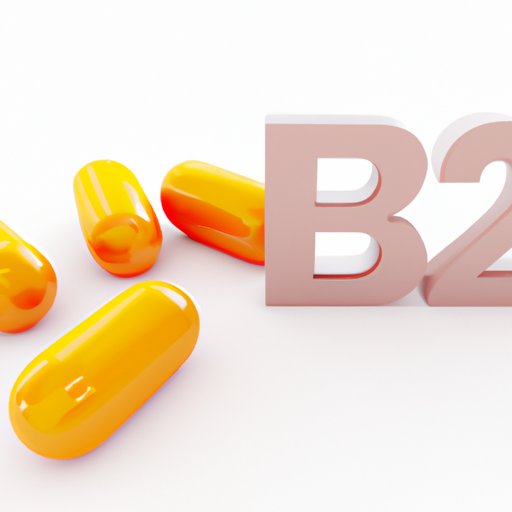
Introduction
Have you ever experienced days where you feel like you just cannot muster the energy to get things done? You might wonder if you’re lacking in specific nutrients and what you can do to increase your energy levels. Many people believe that B vitamins are the answer to this concern, but is there any truth to this claim? In this article, we will explore which B vitamin gives you energy, the science behind it, and the different ways you can incorporate it into your diet to help boost your energy levels.
The Science Behind B Vitamins and Energy Levels
Vitamin B is a group of water-soluble vitamins that play important roles in various physiological functions in the body, including energy production. Although all B vitamins contribute to energy production, one vitamin, in particular, stands out – vitamin B12. This vitamin is crucial for the proper functioning of nerve cells and the formation of red blood cells.
Vitamin B12 helps break down the food we eat into energy that our body can use. It is involved in the metabolism of carbohydrates and fats in the body and helps convert them into glucose, which is the primary source of energy that our cells use to function.
Foods High in Vitamin B
One of the best ways to increase your B vitamin intake is through your diet. Foods that are high in B vitamins include:
- Meat (beef, pork, poultry)
- Eggs
- Dairy products (milk, cheese, yogurt)
- Leafy greens (spinach, kale)
- Legumes (lentils, beans)
If you’re not big on any of these foods, don’t fret. There are plenty of delicious and easy meals that you can make to incorporate more B vitamins into your diet. Some examples could be a spinach and cheese omelet for breakfast or a lentil soup with leafy greens for lunch. Additionally, some breakfast cereals are fortified with B vitamins, which could be an easy option for those who want a quick breakfast on the go.
B Vitamin Supplements for Boosting Energy
If you’re having trouble getting sufficient amounts of B vitamins through your diet, you can also consider taking supplements. There are different types of B12 supplements available, including methylcobalamin and cyanocobalamin.
Although both forms of B12 supplements are effective, methylcobalamin is the better choice for energy because it can be more easily absorbed by the body. It is also worth noting that taking too much B12 can cause potential side effects such as acne or nervous system issues. Therefore, it’s best to talk to your doctor before taking any supplements if you’re unsure.
The Importance of Vitamin B for Athletes and Active Individuals
B vitamins are vital for athletes and active individuals because regular exercise increases the body’s needs for these vitamins. Exercise places a significant strain on the body, and the body needs B vitamins to generate energy to meet this demand. Vitamin B12, in particular, helps reduce fatigue and improve endurance during exercise. It also helps speed up recovery time by repairing and protecting cells from oxidative stress caused by exercise.
Many athletes incorporate B12 supplements into their routine. For instance, triathlete Brendan Brazier said that he uses B12 supplements to help reduce the number of off days due to muscle recovery and maintain good health.
Real-Life Experiences
Your experience with B12 supplements may vary from others, but many individuals report increased energy levels after taking B12 supplements. For example, Alison Armstrong, a clinical psychologist, and productivity expert stated that B12 supplements even improve her memory, weight management, and overall health.
It’s not just athletes or professionals that claim B12 supplements helped them. Parenting expert Janett Cathey stated that after a severe vitamin B12 deficiency, supplements helped her regain her energy, and she felt renewed.
The Link Between B Vitamins, Stress, and Energy
Stress can have significant impacts on our overall well-being, including depleting B vitamins in the body and reducing energy levels. Additionally, high stress levels can deplete the body’s B vitamins, and this can increase anxiety. Therefore, managing stress can be helpful for reducing fatigue and increasing energy levels. Exercise, meditation, and talk therapy are some practical ways to reduce stress. B12 supplements can also help individuals combat stress and anxiety by replenishing B vitamin levels.
Conclusion
In conclusion, B vitamins, especially B12, are essential for energy production. Incorporating B vitamin-rich foods into your diet and taking B12 supplements can help boost energy levels in those who are deficient in these vitamins. Athletes and active individuals may benefit from B12 supplements as they help reduce fatigue, improve endurance, and speed up recovery time. Additionally, managing stress can be helpful in maintaining energy levels and replenishing B vitamin levels. Remember, it’s always important to talk with a doctor before starting any supplements or if you have questions about your health.





